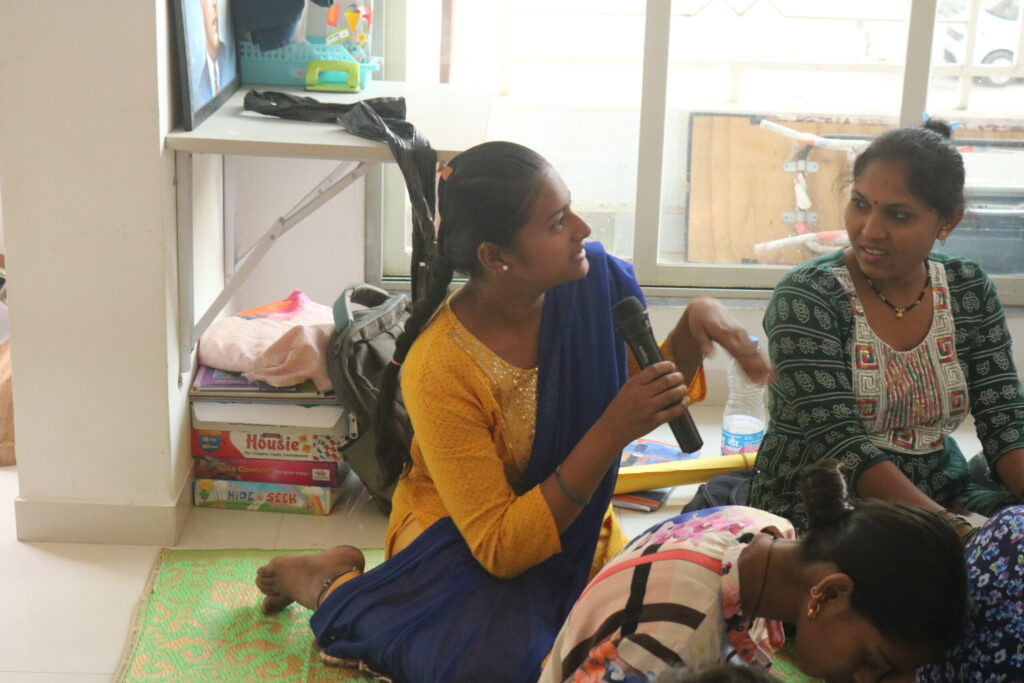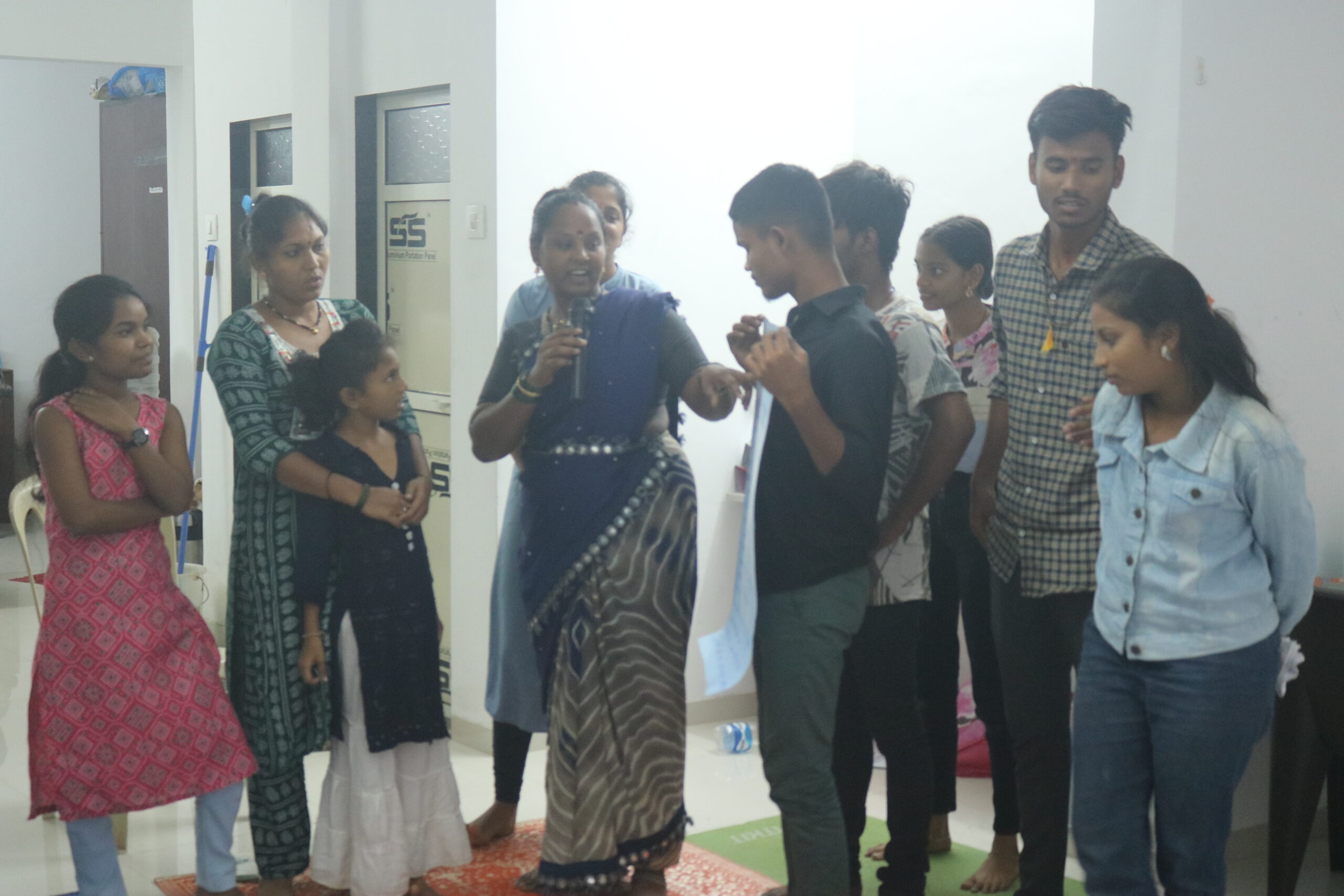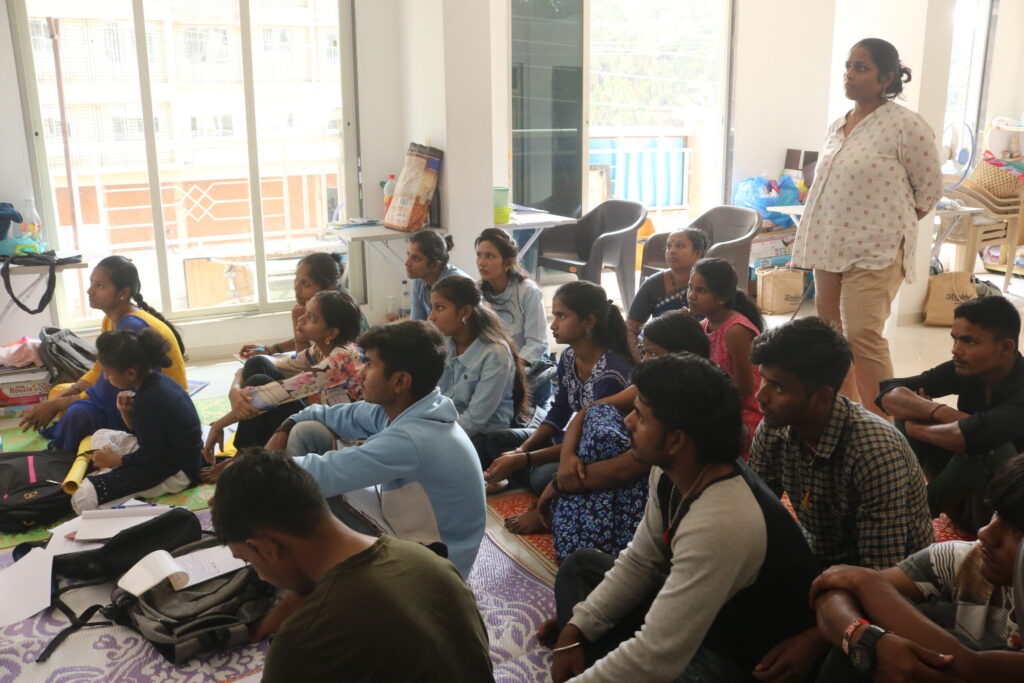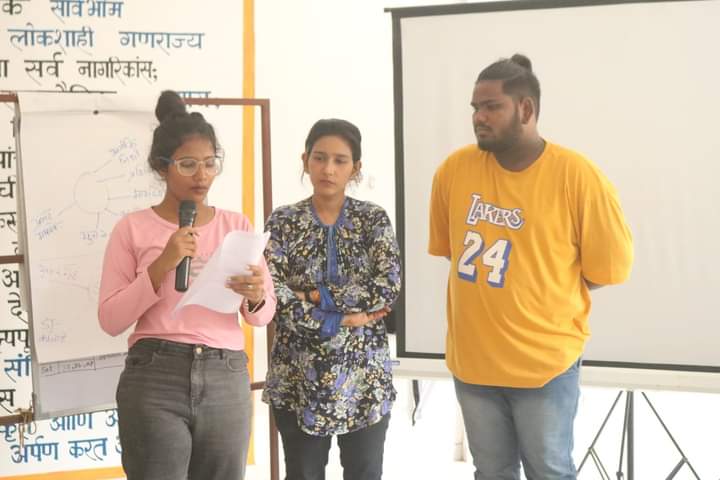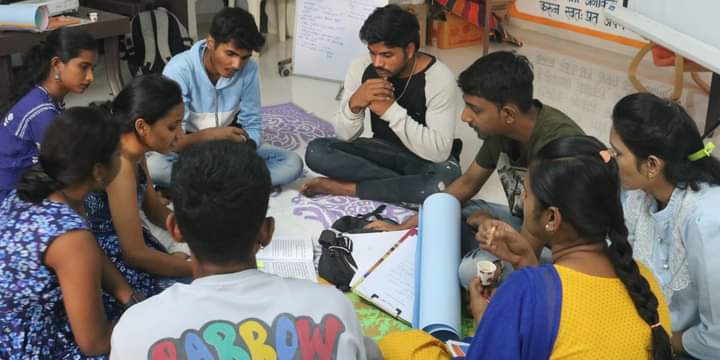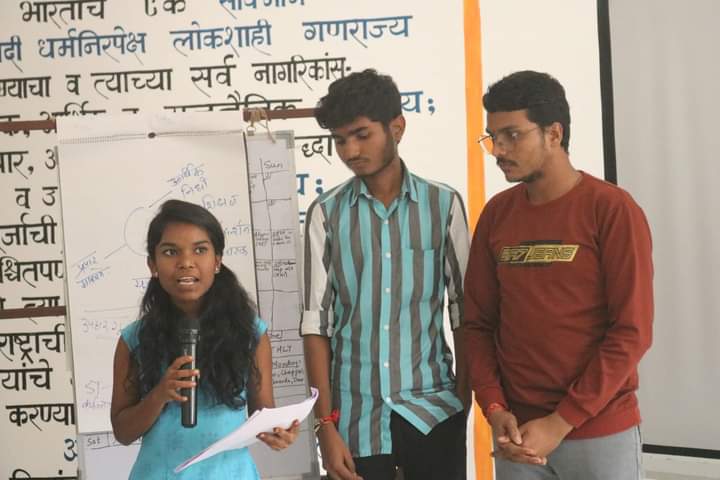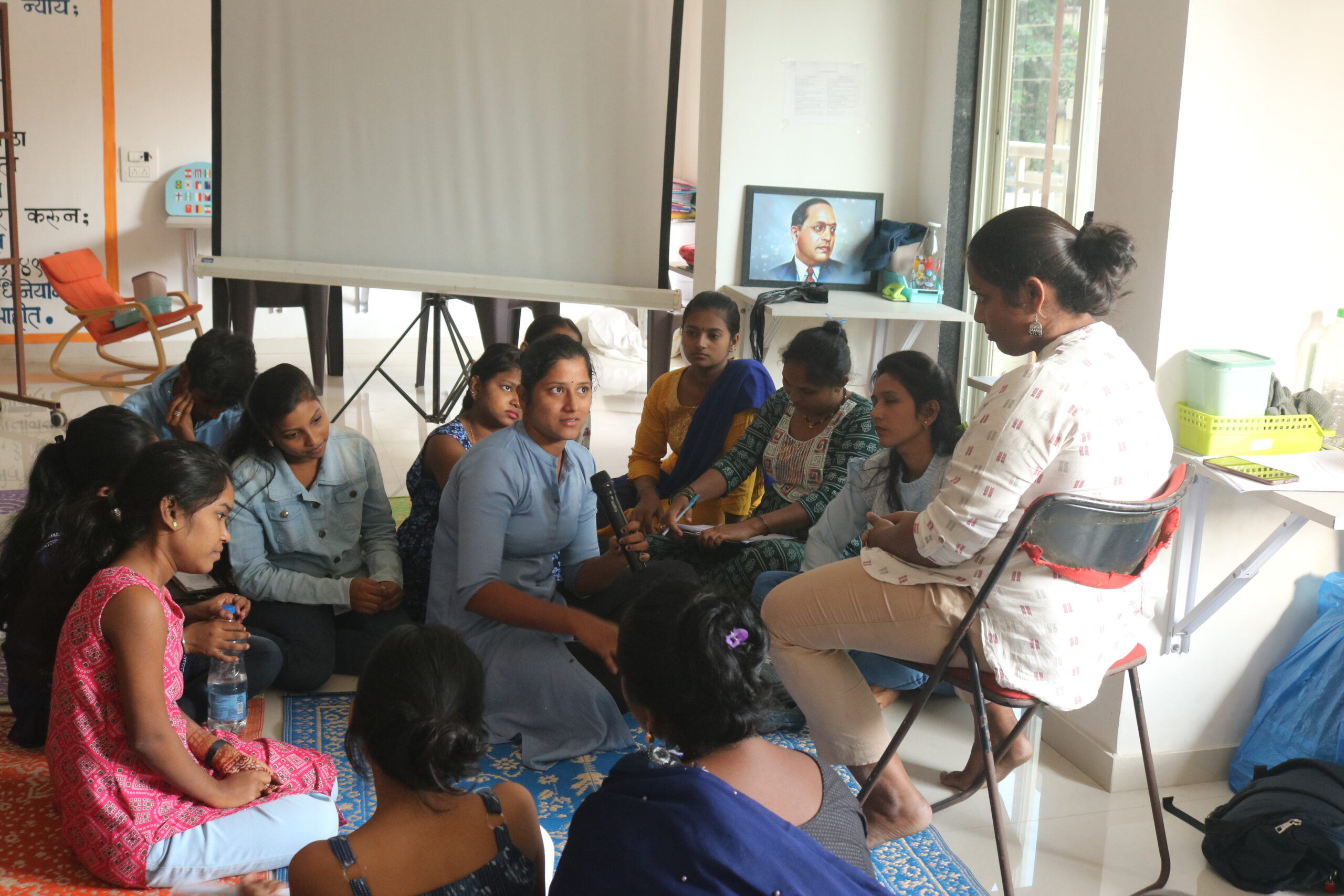With 100% NT-DNT Dalit Bahujan youth selected as fellows, this was only possible because we had a “No Criteria” selection process. NT leaders living in tent communities, Devdasi Murali women leaders, rural community members and youth peers who are associated with us through various in-community programs helped us reach these youth with very rich lived experiences. Education, experience, references, none of these were kept as eligibility criteria to remove all obstacles in the way of diverse youth to reach such platforms. Conceptualized by Deepa Pawar who also belongs to a nomadic tribe, this fellowship is a step to facilitate the social, administrative, political, research, academic participation and representation of this youth Leadership.
Those who have always experienced domination and negation by dominant systems when they try to establish themselves anywhere, take courage from our great men and women leaders who also emerged from the masses, and they are the ones who have always brought about progressive change – and who shall stay in history because of their ethical and progressive ways no matter the level of oppression and manipulation.
The youth went through a rigorous selection process that included filling out application forms, giving interview to a panel of external jury – that included our Community Advisor Sita tai Jagtap who belongs to the Devdasi community, Bhikaji Suradkar who is an expert on Buddhist History and Varsha Shivsharan who is a Child Rights and Pali language expert. All the panel members remarked about the extra ordinary diversity of the applicants and their high articulation level.
This was followed by a 2 days in-depth residential training camp. Seeing the diversity in context, living realities, education, marital status, language, literacy levels, etc. of the group, all the sessions were carried out through games, practical exercises, film screenings, experience sharing, and so on.
This camp was another reminder that those who have always experienced domination and negation, when they try to establish themselves, it is our great men and women leaders from whom they can take courage, guidance, solutions when they are stuck, since these leaders such as Savitribai Phule, Dr. Ambedkar, Bhagat Singh, Fatima, Tukoba, Chokhamela and so many others also emerged from the masses.
Some of the statements made by these fellows who come from little education and exposure, can give a lot to learn for policy-makers and law-makers:
“We should practically experiment to understand the reason behind things or the reality of things which we learnt from yesterday’s exercise of mapping. If we sit in one room and try to plan for a community our imagination will be limited; only when we go out and looked at our premises can we come up with a plan that will work and that will not harm anyone”
“Like it was a challenge to homogenize the things yesterday in an exercise, there are lot of diversity in people. If we take the effort to go under the upper layers that make us seem similar to each other, we will see this diversity and then work accordingly.”
“The most we think in a diverse manner is to think in terms of male and female. Yesterday is the first time I thought that every single thing needs to be seen from the lens of all genders – not just to think from lens of trans persons as a separate afterthought.”
Going forward, the fellows carried out different assignments through which they shall be visiting, meeting, submitting applications to government / administrative stakeholders, mapping their community, identifying community issues, and doing book reviews.
During this there were several in-community meetings led by the Anubhuti team with fellows to guide them in completing their assignments.
In addition, there was a workshop organized in office for all the fellows where they learned about writing application letters for official purposes.
Another workshop was on carrying out Research – this workshop continues with Anubhuti’s module of Community-led Research that is further used for Action and Advocacy. Following in this tradition, the fellows attended a workshop understanding the concept of research, why research is important and how it is part of their everyday lives be it for asking for any civic facility or for advocating for any policy; and on the importance of community-led research – challenging the notion of community being reduced to data providers in mainstream academic research, and instead being data leaders, explorers, advocates and most importantly, to unearth the truth behind their challenging experiences. Such community-led research is invariably rights-based, from Constitutional lens, participatory, and leading to some kind of action and advocacy. This workshop also touched upon the technical aspects of leading all aspects of research – from designing, to data collection, to analysis, writing and presentation. This workshop focused on the research design, tools development and data collection.
This training is being followed by fellows-led audit of toilets in ST Bus Depots in Thane and nearby districts. This topic was identified during one of the meetings with fellows. ST depots are junctions of large number of people – mostly from very poor and marginalized backgrounds who travel from far for work. The condition of toilets at these important places is in very bad condition.
